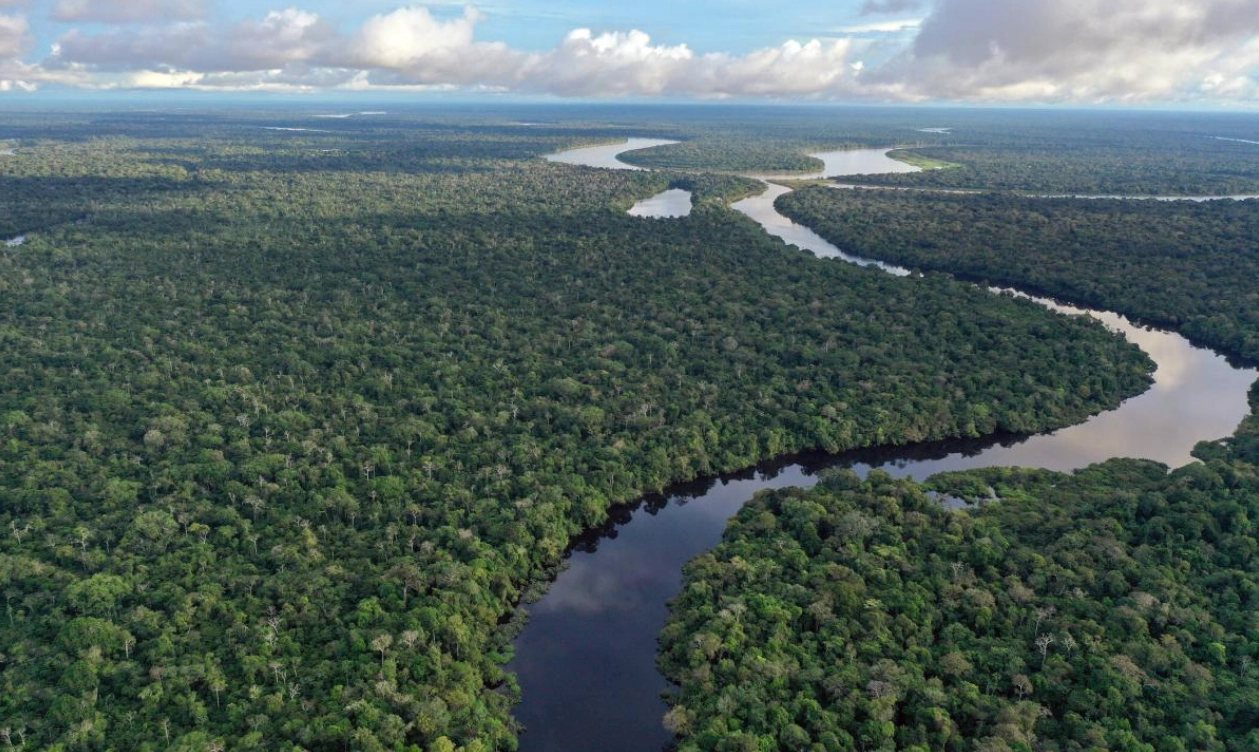Coauthor Erbenia Lourenço
The Amazon Summit, which will take place on August 8 and 9 in Belém, has as one of its main objectives to build consensus among the countries of the region on global climate negotiations. Another objective is to revitalize the Amazon Cooperation Treaty Organization as an agent for promoting international cooperation to address the social problems affecting the vast rainforest.
The Amazon faces a serious problem of food and nutrition insecurity (InSAN), with the northern region of Brazil having the highest rate in the country. According to 2022 data from the PENSSAN Network, about 45.2% of the inhabitants of the northern region suffer some degree of food insecurity. In contrast, food insecurity in the south is only 21.7%, which highlights the immense inequality experienced by Brazilian society.
In the north, unlike the south/southeast, food insecurity is also higher in rural areas than in urban areas. This means that food producers have less to eat. All indications are that the situation is similar among neighboring countries, but there is no Amazonian food insecurity survey that provides comparable and unified data for the inhabitants of this region.
Regional cooperation, as well as cooperation with countries and organizations outside the Amazon, are relevant instruments, and the intensification of the current climate crisis favors global attention to the region. However, fruitful international cooperation is not easy and the construction of Amazonian regionalism is even more complicated. The difficult trajectories of Mercosur and the European Union are examples of this.
To debate these issues, the Zero Hunger Institute (IFZ) promoted a virtual seminar on the theme “Amazonian regionalism: can the fight against hunger guide international cooperation among the peoples of the Amazon? In this forum, there was consensus on the fact that, in order to achieve the construction of effective food security policies in the Amazon, the social participation of local populations and governments is essential.
In a region affected by several challenges, such as climate change and the difficulty of access to food, one possibility is the valorization of Amazonian products and especially of its hundreds of fruits, like the açaí, which can contribute to the fight against hunger and to the sustainable economic development of the region, as long as they do not give rise to monocultures.
In the region, it is necessary to rethink the food production and distribution model, promoting secure local supply and reducing dependence on ultra-processed foods. A good idea is to resume the Bolsa Verde Program, an adaptation of the Bolsa Família program, to encourage the preservation of forests and promote the regeneration of degraded areas.
However, food security policies cannot be treated in isolation. The fight against hunger in the Amazon requires macroeconomic policies that promote inclusive development and address social inequalities, without forgetting urban populations, often made invisible by the real drama of populations living outside the cities.
The Amazon Cooperation Treaty Organization (ACTO) is an important element in the regional cooperation process. The Brazilian government has expressed its desire to strengthen ACTO so that it can assume an assertive and effective role that it has never really had. The Amazon Summit will be an opportunity to deepen these discussions and begin to define common horizons that justify the countries’ cooperation through ACTO. The objective of transforming the fight against hunger, as well as the promotion of healthy food, into an engine capable of preserving and regenerating the environment, can fulfill precisely this function.
Although, due to internal problems, differences among governments, and the international situation, it will not be easy to establish a broad program of cooperation; in Leticia, Colombia, on July 8, 2023, President Lula presented some proposals. These include the institutionalization of the Regional Observatory of the Amazon; the creation of a committee of Amazonian experts, inspired by the Intergovernmental Panel on Climate Change (IPCC), to generate knowledge and produce science-based recommendations; and the valorization of knowledge and local actors in the coordination of public policies through actions such as the creation of a Forum of Amazonian Cities and an Amazonian Parliament.
Regarding organized crime, also considered a serious cause and threat to food security in the region, Lula proposed the creation of an Amazon Center for International Police Cooperation in Manaus and the creation of an Integrated Air Traffic Control System to disrupt the routes used by organized crime. To implement these proposals, Lula made clear the need to provide ACTO with clear guidelines and adequate resources, as well as to articulate itself in strategic international discussion forums.
Although these proposals are being formulated in a swampy political and geopolitical environment in northern South America, the resistance of the Amazonian indigenous peoples to centuries of aggression and oppression serves as an inspiration for tackling this arduous task, which can be accomplished. In this sense, the quest for food and nutritional security can be a common objective to guide cooperation among Amazonian countries and peoples, including indigenous peoples, quilombolas, and riverine communities, without marginalizing urban populations.
The creation of institutional and material conditions for the enjoyment of the Human Right to Adequate Food, which includes income generation without destroying the environment, should be a guiding principle for the Amazon Summit. And as global climate negotiations rightly build consensus on the fact that the ecological crisis leads to food catastrophes, Brazil and its neighbors will have the opportunity to defend the position that food sovereignty, with international cooperation, is an important vector for combating deforestation and restoring biodiversity.
Any proposal, however, must be based on solid knowledge about the state of food and nutrition insecurity in the Amazon. Conducting this type of research could be a revitalizing mission for ACTO and productive for its member countries.
*Erbenia Lourenço holds a Master in Public Management and International Cooperation from UFPB and is a researcher at FomeRI.
The Heinrich Böll Foundation (Brazil) supports this initiative of the Zero Hunger Institute.
Translated from Spanish by Janaína Ruviaro da Silva













